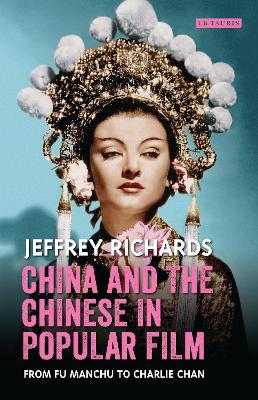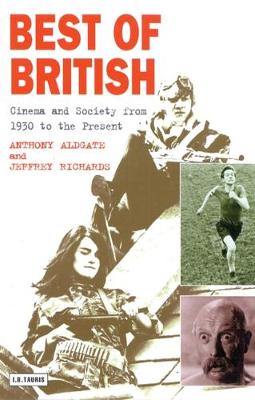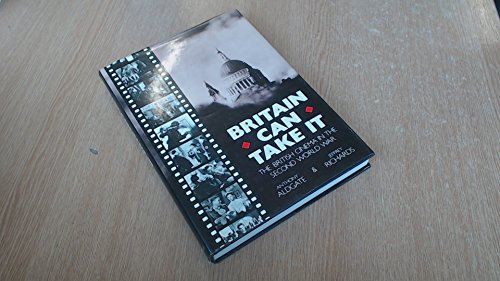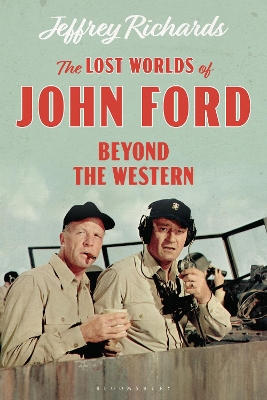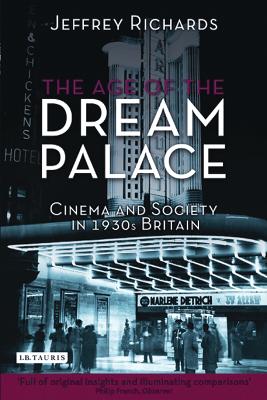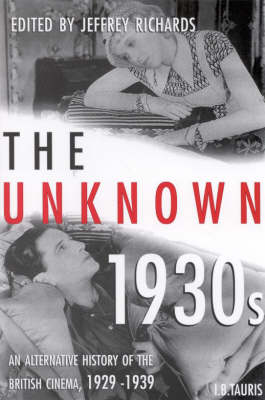Cinema and Society
7 total works
There's a folk memory of China in which numberless yellow hordes pour out of the 'mysterious East' to overwhelm the vulnerable West, accompanied by a stereotype of the Chinese as cruel, cunning and depraved. Hollywood films played their part in perpetuating these myths and stereotypes that constituted 'The Yellow Peril'. Jeffrey Richards examines in detail how and why they did it. He shows how the negative image was embodied in recurrent cinematic depictions of opium dens, tong wars, sadistic dragon ladies and corrupt warlords and how, in the 1930s and 1940s, a countervailing positive image involved the heroic peasants of The Good Earth and Dragon Seed fighting against Japanese invasion in wartime tributes to the West's ally, Nationalist China. The cinema's split level response is also traced through the images of the ultimate Oriental villain, the sinister Dr. Fu Manchu and the timeless Chinese hero, the intelligent and benevolent detective Charlie Chan.Filling a longstanding gap in Cinema and Cultural History, the book is founded in fresh research into Hollywood's shifting representations of China and its people.
The new, revised and expanded paperback edition of this widely-used textbook for film history brings up to date its authors' demonstration of how a close study of films in their historical and cultural settings can enrich our understanding of both cinema and historical events. It introduces three new chapters, one focusing on _The Blue Lamp_ and changes in cinema's depiction of the police from that key 1949 film up to the 1960s, another on the 'British New Wave' centring on _The Loneliness of the Long Distance Runner_, and a third which, starting from _Scandal_ and its recreation of the 1960s Profumo scandal, goes on to examine the 'retro' fashion for covering crimes of the 1940s, '50s and '60s in films of the 1980s like _Let Him Have It, Dance with a Stranger_ and _Chicago Joe and the Showgirl_. This edition has a new, accessible format and provides a valuable Resource Section for teachers, students and scholars.
This work charts Britain's reaction to World War II by examining 13 key films produced between 1939 and 1945, including the work of Noel Coward, George Formby, Leslie Howard and Carol Reed. The book is illustrated with stills from each film, and considers script, reviews and box office returns to place each in its social and political context. It also draws from official documentation - Home Intelligence reports, Mass-Observation files, Ministry of Information papers and British Board of Film Censors archives - to illuminate the relationship between the official propagandists and the film-makers at this time. This revised edition features two new chapters and a filmography.
The great director John Ford (1894-1973) is best known for classic westerns, but his body of work encompasses much more than this single genre. Jeffrey Richards develops and broadens our understanding of Ford's film-making oeuvre by studying his non-Western films through the lens of Ford's life and abiding preoccupations. Ford's other cinematic worlds included Ireland, the Family, Catholicism, War and the Sea, which share with his westerns the recurrent themes of memory and loss, the plight of outsiders and the tragedy of family breakup. Richards' revisionist study both provides new insights into familiar films such as The Fugitive (1947); The Quiet Man (1952), Gideon's Way and The Informer (1935) and reclaims neglected masterpieces, among them Wee Willie Winkie (1937) and the extraordinary The Long Voyage Home. (1940).
The period between the two world wars is often named 'the golden age of the cinema' in Britain. This definitive and entertaining book on the cinema and cinema-goers of the era is herewith reissued with a new Introduction. Jeffrey Richards, described by Philip French as 'a shrewd critic, a compulsive moviegoer, and a professional historian', tells the absorbing story of the cinema during the decade that produced Alfred Hitchcock's thrillers, the musicals of Jessie Matthews and Alexander Korda's epics. He examines the role of going to the pictures in people's lives during a tough period when, in the sumptuous buildings that housed local cinemas, people regularly spent a few pence to purchase ready-made dreams watching Gracie Fields, Robert Donat and the other stars of the day. He scrutinizes the film industry, censorship, cinema's influence, the nature of the star system and its images, as well as the films themselves, including the visions of Britain, British history and society that they created and represented.
A group of film historians chart a map of 1930s British cinema. They reassess the films, stars, genres and directors omitted from accounts of the decade, and they evaluate its forgotten and recently discovered films. The book includes, for example, a view of British audiences over the period, a fresh look at the producer Julius Hagen and his independent Twickenham film studios, and the story of how MGM dealt with the dictates of the Films Act. Stars Conrad Veidt and Tod Slaughter, and directors Bernard Vorhaus and Robert Stevenson, are central to chapters which explore how star images are constructed, how class and gendre issues interact in British melodrama, and how "imported" directors gave new vitality to British cinema. The British shocker and the British musical, popular 1930s genres, provide views of cinema and national identity, and there is fresh analysis of a neglected period in Michael Powell's directorial career, when he was learning his creaft on the notorious "quota quickies". The contributors include Anthony Aldgate, Geoff Brown, James Chapman, H. Mark Glancy, Keven Gough-Yates, Stephen Guy, Sue Harper, Brian McFarlane, Jeffrey Richards, John Sedgewick and Linda Wood.
